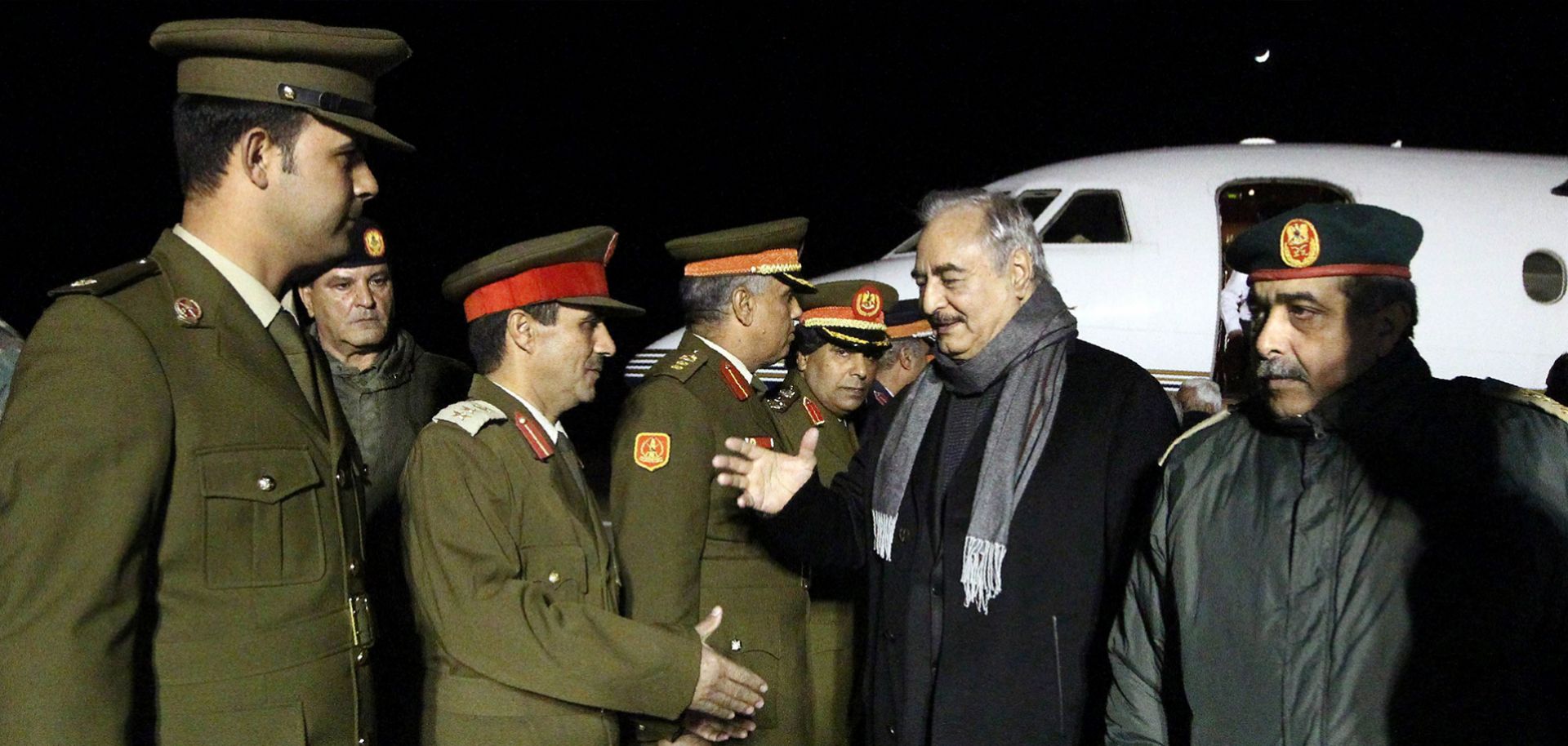ASSESSMENTS
Holding Up the Peace Process in Libya
Feb 17, 2017 | 09:15 GMT

(ABDULLAH DOMA/AFP/Getty Images)
Summary
The latest attempt to bring Libya's rival governments together has failed. Since December 2015, when the Libyan Political Agreement was signed to unify the rival House of Representatives and General National Congress behind a unity government known as the Government of National Accord, the three administrations have been vying for control of the country. As fighting between the governments' supporting militias raged on over the past few months, diplomatic initiatives to renegotiate the terms of the Libyan Political Agreement to find a more workable solution intensified. Russia, Europe, Tunisia and Algeria all lobbied to bring Government of National Accord Prime Minister Fayez al-Sarraj and Field Marshal Khalifa Hifter, the House of Representatives' most powerful military supporter, together to discuss Libya's future. On Feb. 13-14, Egypt coordinated meetings between the leaders — their first in over a year — with high hopes for a successful negotiation. The talks fell apart, however, when Hifter refused to meet with al-Sarraj.
Though the two leaders agreed to negotiate through a mediator and committed to continuing negotiations, they are unlikely to reach a consensus anytime soon. Hifter, the head of the Libyan National Army, has been steadily gaining power in Libya since he launched a military campaign against jihadist and Islamist groups in eastern Libya in 2014. (He then took on Libya Dawn, a collection of militias backing the General National Congress.) Today, his influence in the country is so great that even his opponents in Libya and in the international community recognize that his inclusion and participation will be essential to establishing a viable government. Being indispensable has given Hifter the upper hand in negotiations and enabled him stand firm in his demands, namely that he be installed at the top of Libya's military command structure. Unlike his counterparts in the Government of National Accord, which has been steadily losing legitimacy, Hifter can afford to play the long game.
Subscribe Now
SubscribeAlready have an account?
